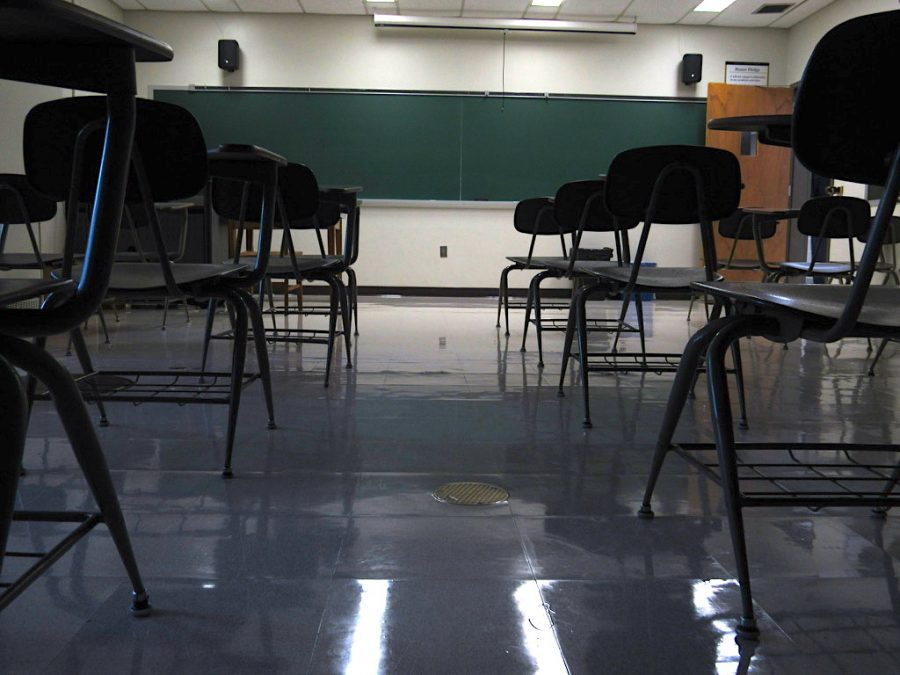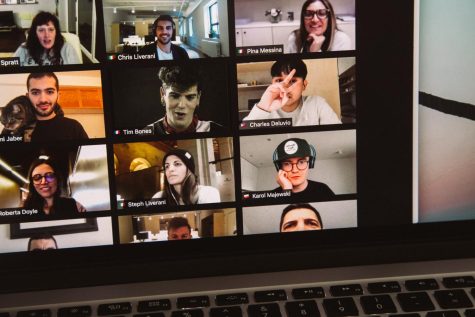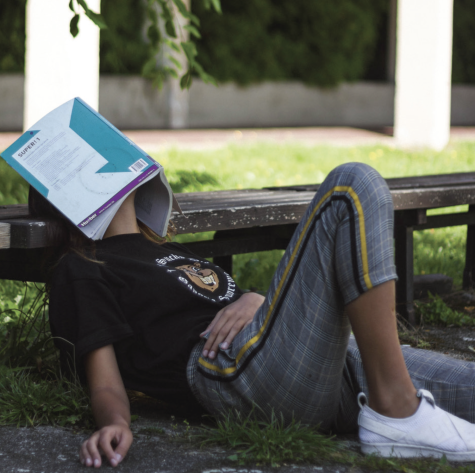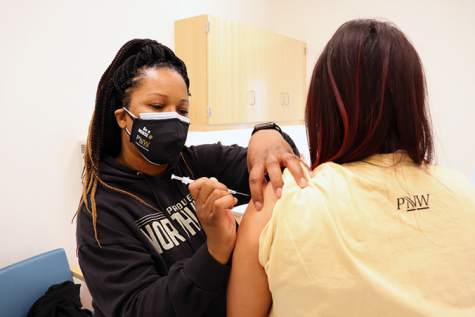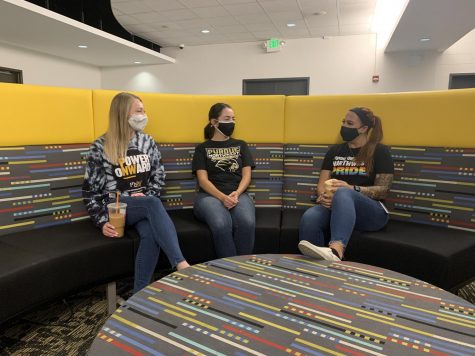Season change raises worries about student’s mental health
The isolation of inline classes can compound the impact of Seasonal Affective Disorder for students
COVID-19 prevention efforts have taken a toll on students’ academic and social lives since March. But things may be about to get worse.
As colder weather and shorter days set in, the emotional impact of COVID-driven isolation will be compounded by depression associated with dark winter months.
“I am scared,” said Emily Plesac, sophomore. “I am struggling with depression already, and COVID made a huge negative impact on my mental health. [In the winter] I allow myself into the bad habit of never leaving my bed … because it is too cold outside to do anything, … Those gloomy months make my depression even worse.”
The problem is common. About 25% of U.S. college students suffer from some sort of seasonal depression, according to the National Institute of Mental Health.
Symptoms can range from gloominess or lethargy associated with what is typically called the winter blues to the debilitating depression of seasonal affective disorder, which affects all aspects of life – from school to personal relationships.
“This year has been by far the worst year I’ve had for my mental health and all of the complications that come with the pandemic,” said Julian Davila, junior. “Struggling to find a job, and worrying about whether or not I have been exposed somehow, has definitely taken a great toll on my mental health.
“But something about the added darkness of the seasons changing, with the cold temperatures that I hate, makes me very depressed,” he said. “I feel a sharp spike in anxiety out of the fear of not accomplishing anything because my brain starts processing the early sunset as the end of the day, which causes me to spiral into many negative thoughts.”
PNW counselors anticipate that many students may need help.
“This year, along with COVID-19, students may experience new or more intense symptoms related to SAD, due to being more physically distanced indoors,” said Vincent M. Marasco, Assistant Professor of School of Education and Counseling, who helps to manage the Counseling Center. “The anticipation of ‘how bad things will be’ can add to mental stress.”
He urged students who feel anxious or depressed to contact PNW’s Counseling Center, which provides free and confidential mental health services to students, while following CDC recommendations.
“Utilize counseling services available to you,” said Marasco. “Virtual counseling sessions through PNW can be used to address symptoms of SAD and develop coping skills to manage symptoms.”
Demand for those services may be significant.
“I am not feeling well with everything to come within the next few months,” said Lili Otero, senior. “As exciting as it can be with the holidays coming up, it is also hard to face that it is best to not be with and around your family as much as possible, which makes the seasonal depression even worse.
“My entire family lives within a 15 minute drive and because of COVID, I know I can not see them as much,” she said. “I am so lucky though to be in a time where I can easily call or FaceTime them and get that interaction that brings me so much joy.”
But some students don’t feel so lucky.
“Covid has been pretty rough with nowhere to escape from home,” said Mina Pambianco, freshman. “Not being able to do as much with friends or family has made it very tough for me to find ways to get out of my own head and thoughts.”
“During winter, I lack motivation, I am very emotional, less active, and have worse eating habits,” she said. “Seasonal depression has been ongoing for many years, and I tend to push away people, get stressed out easily, and think that I am not good enough for anyone.”
Junior Carolina Meraz is nervous about winter.
“I get so caught up in the fact that this is so abnormal, and that might be our new reality,” she said. “Instead of beating COVID, I feel like I am supposed to just adjust to it, which is a mental struggle. “I am not looking forward to the snow and gloomy weather.”
For Emily Plesac, a sophomore, the entire year has been challenging.
“I didn’t feel real, nothing felt real, I felt like a ghost,” she said. “This year has already been such a battle for me, and I am so scared that I am going to be battling so much harder than I have to.”


